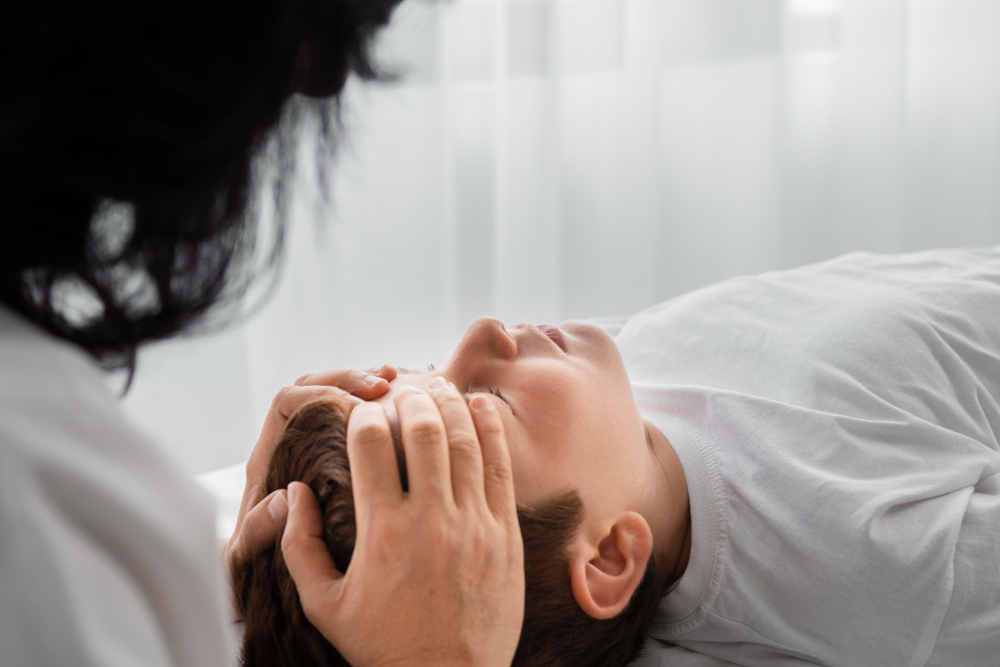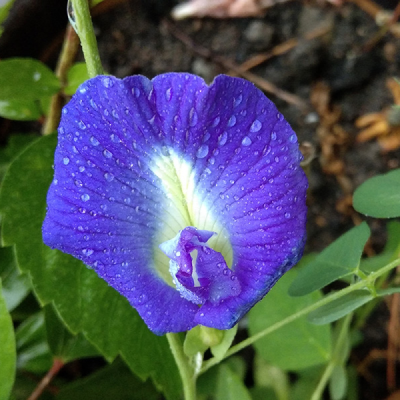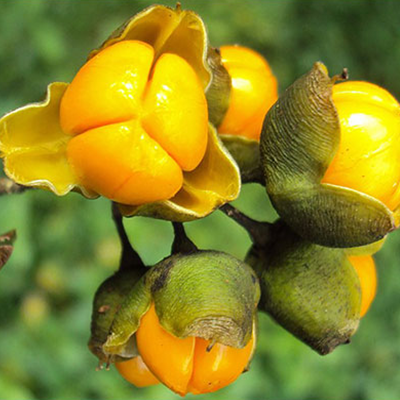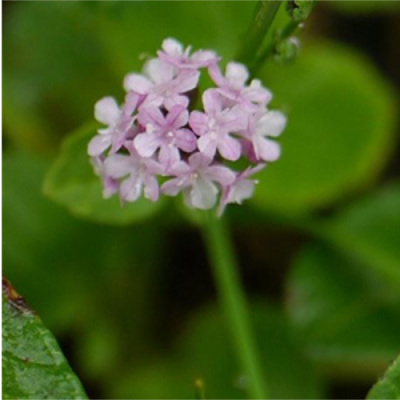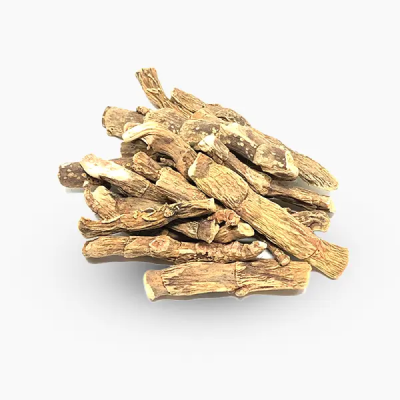Epilepsy is a chronic neurological disorder characterized by recurrent, unprovoked seizures caused by abnormal electrical activity in the brain. Seizures can vary in type, severity, and frequency, and they often affect a person’s motor, sensory, or behavioural functions. Epilepsy can occur at any age and may have diverse underlying causes.
Types of Seizures
Seizures are broadly classified into two main categories based on their origin in the brain:
1. Focal Seizures (Partial Seizures)
Originates in a specific area of the brain.
- Focal Aware Seizures (Simple Partial Seizures): No loss of consciousness; symptoms may include twitching, unusual sensations, or brief changes in behaviour.
- Focal Impaired Awareness Seizures (Complex Partial Seizures): Altered awareness, confusion, repetitive movements like hand clapping or lip-smacking.
2. Generalized Seizures
Involves both hemispheres of the brain.
- Tonic-Clonic (Grand Mal): Loss of consciousness, body stiffening (tonic phase), followed by jerking movements (clonic phase).
- Absence Seizures (Petit Mal): Brief loss of awareness, staring spells, or subtle body movements.
- Myoclonic Seizures: Sudden, brief jerks or twitches of muscles.
Causes of Epilepsy
The causes of epilepsy vary and can be classified as:
1. Structural Causes
- Brain injury (e.g., trauma, stroke, or surgery).
- Brain infections like meningitis or encephalitis.
- Developmental abnormalities or tumours.
2. Genetic Causes
Inherited gene mutations or familial epilepsy syndromes.
3. Metabolic Causes
Electrolyte imbalances, low blood sugar, or kidney failure.
4. Infectious Causes
Parasitic infections like neuro-cysticercosis.
5. Idiopathic (Unknown Causes)
No identifiable cause; may involve genetic predisposition.
Symptoms of Epilepsy
Symptoms depend on the type of seizure but may include:
1. before a Seizure (Aura)
- Sensory changes: Unusual smells, tastes, or sounds.
- Emotional disturbances: Anxiety or déjà vu.
2. during a Seizure
- Loss of consciousness or awareness.
- Muscle stiffness, twitching, or jerking movements.
- Staring or unresponsiveness.
- Incontinence or drooling.
3. after a Seizure (Postictal State)
- Confusion or disorientation.
- Fatigue or drowsiness.
- Headache or muscle soreness.
Complications of Epilepsy
If untreated or poorly managed, epilepsy can lead to complications such as:
- Injury Risks: Falls, fractures, or accidents during a seizure.
- Sudden Unexpected Death in Epilepsy (SUDEP): Rare but serious risk, particularly in uncontrolled seizures.
- Cognitive Impairment: Memory problems or difficulty concentrating.
- Emotional Issues: Anxiety, depression, or social stigma.
- Developmental Delays: In children with epilepsy.
- Status Epilepticus: Prolonged seizures (>5 minutes) that require emergency treatment.
Diagnostic Tests for Epilepsy
- Neurological Examination: Assessing motor skills, reflexes, and cognitive function.
- Electroencephalogram (EEG): Measures electrical activity in the brain to detect abnormal patterns.
- Brain Imaging:
- MRI or CT Scan: Identifies structural abnormalities like tumours, scars, or strokes.
- PET or SPECT: Detects areas of reduced brain function or metabolism.
- Blood Tests: Identifies metabolic issues, infections, or genetic conditions.
- Video-EEG Monitoring: Simultaneously records seizures and brain activity.
- Neuropsychological Testing: Evaluates memory, reasoning, and language skills.
Ayurvedic perspective
In Ayurveda, Apasmara (epilepsy) is described as a disorder of the nervous system caused by an imbalance in the Tridoshas, primarily the disturbance of Vata dosha, combined with emotional disturbances and poor lifestyle. The accumulation of toxins (Ama) in the nervous system disrupts mental clarity (Sattva), leading to episodes of unconsciousness and convulsions.
- Vata Dominance: Erratic behavior, tremors, and sudden loss of consciousness.
- Pitta Dominance: Burning sensations, anger, or aggression during seizures.
- Kapha Dominance: Heaviness, lethargy, and prolonged confusion post-seizure.
Treatment of Epilepsy
Ayurvedic treatment focuses on balancing the doshas, detoxifying the body, and nourishing the nervous system. The therapy includes herbal remedies, Panchakarma treatments, dietary modifications, and lifestyle changes.
Panchakarma Therapies
- Virechana (Purgation Therapy): Eliminates excess Pitta and clears toxins.
- Nasya (Nasal Therapy): Administering medicated oils like Brahmi ghrita through the nostrils to calm the nervous system.
- Shirodhara: A continuous stream of medicated oil poured on the forehead to reduce stress and balance Vata.
- Basti (Medicated Enemas): Used to strengthen the nervous system and eliminate Vata aggravation.
Dietary Recommendations
Avoid: Spicy, fried, or processed foods that aggravate Pitta and Vata.
Include:
- Warm, light, and easily digestible foods.
- Cow’s ghee (clarified butter) for its calming and nourishing properties.
- Foods rich in magnesium, like green leafy vegetables and nuts, to support the nervous system.
Lifestyle Modifications
- Maintain a regular sleep schedule to prevent exhaustion.
- Practice relaxation techniques like Pranayama (breathing exercises) and Meditation to calm the mind.
- Avoid known seizure triggers, such as loud noises, flashing lights, or stress.
- Engage in gentle yoga practices like Balasana (Child’s Pose) and Shavasana (Corpse Pose) to relax the nervous system.
Internal Herbal Remedies
Brahmi (Bacopa monnieri)
Enhances cognitive function and calms the mind.
Shankhpushpi (Convolvulus pluricaulis)
Reduces mental stress and improves memory.
Jyotishmati (Celastrus paniculatus)
Improves brain function and relieves anxiety.
Ashwagandha (Withania somnifera)
Strengthens the nervous system and reduces stress.
Tagara (Valeriana wallichii)
Promotes relaxation and aids sleep.
Vacha (Acorus calamus)
Helps pacify Vata and improve brain function.
Epilepsy is a complex neurological disorder with various underlying causes and complications. In Ayurveda, it is managed holistically by addressing the root cause, detoxifying the body, balancing the doshas, and supporting the nervous system. Regular follow-ups with both Ayurvedic and conventional practitioners are recommended for optimal management and prevention of complications.


